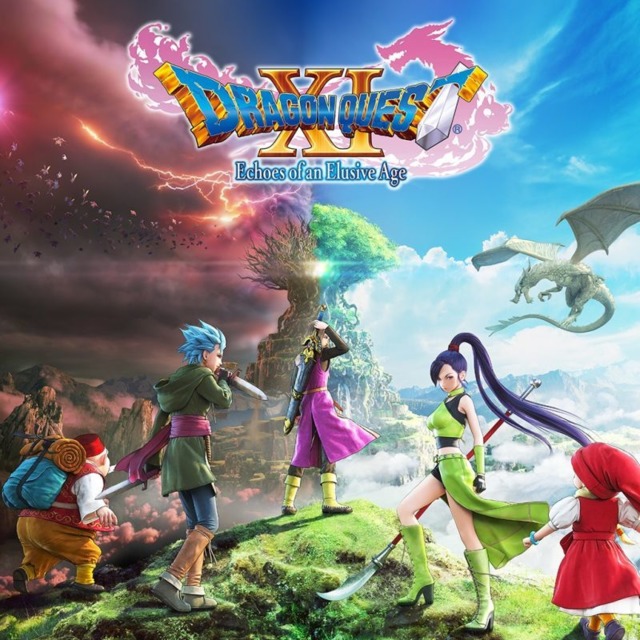
I've been thoroughly enjoying my playthrough of Dragon Quest XI: Echoes of an Elusive Age so far; the game's charming as hell and it's become something of an unfortunate rarity in this day and age to play a full-budget single-player Japanese RPG given the way priorities have shifted in that market (mostly towards MMOs, F2P, and mobile) so I intend to make it last throughout this unseasonably chilly March as the video game equivalent of a warm comforter that it is. However, part of my decision to play it over Dragon Quest Builders 2 - another backlog item on the docket for this year - is because I considered my relationship with the Dragon Quest franchise as a whole and realized I've played more of its spin-offs than its core series and should probably address that imbalance. My only core DQ games prior to this were DQIV (Chapters of the Chosen) and DQVIII (Journey of the Cursed King), and a half-finished run of DQIX (Sentinels of the Starry Skies), for a total of two-and-a-half core game playthroughs. Conversely, I've taken on Dragon Quest Monsters (I didn't get too far through this one either admittedly), Dragon Quest Heroes: The World Tree's Woe and the Blight Below, Dragon Quest Heroes: Rocket Slime, Dragon Quest Swords: The Masked Queen and the Tower of Mirrors, and the original Dragon Quest Builders. Are there any other large video game franchises capable of producing so many spin-offs of equal or higher quality than their core output?
I wanted to have a quick thought experiment to figure this out, and I'd absolutely encourage others to contribute to it in the comments below. If there's a spin-off you preferred more than the original, even if it's not a widely-held stance, let me know. I'm curious to hear more examples from franchises I'm perhaps less familiar with. For the time being, I've arranged my own list of franchises that have managed to create superior spin-offs below.
(NB: For something to truly qualify as a video game spin-off, rather than a sequel that changed avenues, you have to first establish what the "core" entries look like and how the spin-offs differ. This typically involves the spin-off adopting an entirely new genre structure, or embracing a new setting than the recurring one that the core games use (in the case of something like Suikoden Tierkreis). It's all open to interpretation of course, but with the following list I've tried to justify a game's spin-off status along with how it managed to outshine the original series.)
Dragon Quest
Might as well start here, since it was the inspiration. The core Dragon Quests can be easily distinguished by their numerals of course, but more broadly the core DQ games are built with a turn-based battle system and a mostly linear narrative to follow, with some amount of "on a leash" open-world level design that allows for bonus dungeons and other modes (like casinos, monster-raising, and other mini-games). Dragon Quest also has a rare status in its homeland for being this beloved nostalgic fixture and part of maintaining that appeal is to not push the envelope too much in terms of its structure. Dragon Quest X in particular as a MMORPG was about as far from the mold as the core series ever dared to get. So far there have been eleven core entries, numbered 1-11. The first trilogy were tenuously connected sequels set in the same world, but the rest since then have been standalones.
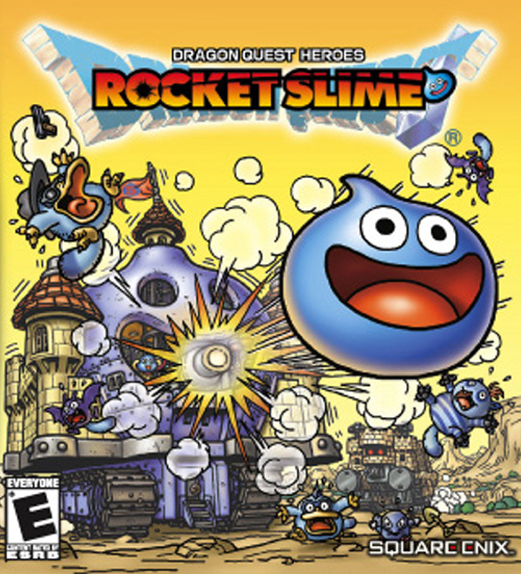
Dragon Quest's many spin-offs have so far involved: real-time Musou combat (Dragon Quest Heroes I and its sequel); real-time action RPG with strategic mech battles (Dragon Quest Heroes: Rocket Slime and its GBA predecessor and 3DS sequel); turn-based RPGs focused on monster-raising (Dragon Quest Monsters and Dragon Quest Monsters: Joker and their sequels); open-world crafting and survival (Dragon Quest Builders and its sequel); "mystery dungeon" roguelikes (Torneko no Daibouken and its sequels); a tactical RPG (Dragon Quest Wars); an on-rails hack-and-slash action game (Dragon Quest Swords); and a rhythm game (Theatrhythm Dragon Quest). It's my firmly held belief that Dragon Quest Heroes: Rocket Slime is the best game attached to the Dragon Quest name, of the core games and spin-offs both, though I've heard very positive things about Dragon Quest Builders 2 and I'd love to try out that Theatrhythm game at some point. Rocket Slime's an eccentric DS game that defies any simple explanation as to how it rolls and why it's so much fun, only to say that it involves a massive number of slime puns, Zelda-style puzzle dungeons, and large-scale mech battles that might involve collecting a bunch of carefully-crafted weapons, stuffing them all into a huge cannon, and then firing the resulting ball at a giant tree mech called "Chrono Twigger."
I think a major advantage of Dragon Quest's whole approach and how that pertains to lending itself well to spin-offs is that the Akira Toriyama art style, generally lighter fantasy tone, and its silly wordplay means you can transplant it into mechanically-distinct gaiden games without ever fearing the loss of the franchise's "identity"; it'd be hard to confuse a Dragon Quest game for anything else no matter what form its gameplay takes.
Final Fantasy
Final Fantasy's embraced spin-offs in much the same way as its chief rival, though it feels less beholden to the concept as an outlet for the wilder ideas that the developers come up with. For one, each Final Fantasy doesn't feel the need to adhere to the blueprint of what came before, beyond being vaguely turn-based RPGs, and massive stylistic and mechanical differences are regularly promoted from within the core franchise. That said, there's a number of Final Fantasy spin-offs I'd put on the same tier as the core entries, and at least one I'd raise above all others. The core Final Fantasy franchise currently comprises fifteen games numbered 1-15 with a sixteenth on the way, though there's a complication in that many have direct sequels or prequels: namely Final Fantasy X-2, Final Fantasy XIII-2, Lightning Returns: Final Fantasy XIII, Final Fantasy IV: The After Years, Before Crisis: Final Fantasy VII, and Crisis Core: Final Fantasy VII. There's also the Final Fantasy VII Remake. For the sake of simplicity, I'm discounting any of these as core games or spin-offs but something in-between.
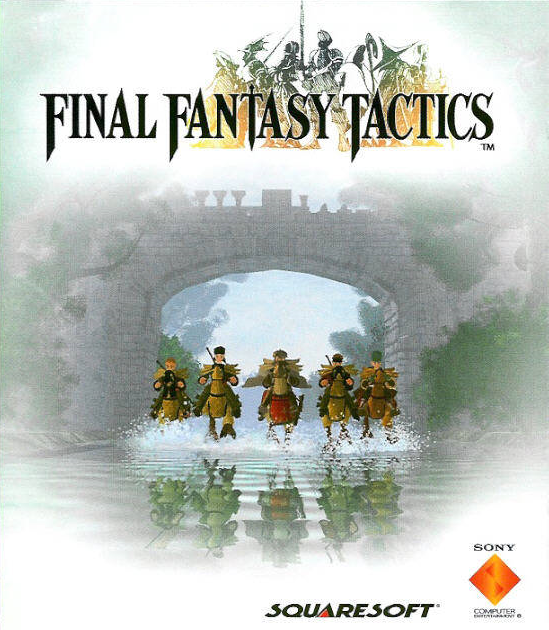
I am counting Dirge of Cerberus: Final Fantasy VII as a spin-off however, even if I have no current plans to play it (I'll leave the bad Final Fantasy games to my blogging compatriots @zombiepie and @thatpinguino to analyse). Trying to track all the Final Fantasy spin-offs is a fool's errand, so I'll just focus on the highlights that saw localizations: a tactical RPG series (Final Fantasy Tactics and its portable sequels); a multiplayer-focused action RPG (Final Fantasy Crystal Chronicles though its sequels are closer to traditional FF games); a game that focused on mini-games (Final Fantasy Fables: Chocobo Tales and its sequels); another mystery dungeon roguelike series (Final Fantasy Fables: Chocobo's Dungeon); an action-RPG with a mission structure and variable team dynamic (Final Fantasy Type-0); an RTS (Final Fantasy XII: Revenant Wings); and an "entry-level" RPG that was greatly simplified (Final Fantasy Mystic Quest). There's also a whole bunch of F2P and mobile games that I'm in no mood to sort out.
There's a temptation to consider Square's Mana and SaGa franchises as spin-offs as their respective first entries were branded as Final Fantasy games either at home or internationally, but those were mostly marketing decisions borne of exploiting name recognition for a pair of gaiden Game Boy RPGs that quickly became separate from the Final Fantasy brand. Even if we accept them as spin-offs, and for as much as I love Secret of Mana, I don't think either Mana or SaGa compares to the core Final Fantasy series regardless.
I have a fondness for Mystic Quest, mostly for its music, but I'm not going to pretend it's better than any of the core SNES-era Final Fantasy games. Ditto for Type-0 and Final Fantasy Crystal Chronicles; they're definitely entertaining, but the core games of their respective eras eclipse them too. However, the original Final Fantasy Tactics is the best Final Fantasy game, even in spite of some pacing and difficulty curve issues. The brainchild of Yasumi Matsuno, who had made a similar SRPG (Tactics Ogre: Let Us Cling Together) for Quest prior to their acquisition by Square, Final Fantasy Tactics incorporates the job system of Final Fantasy III and V for an incredible amount of character customization potential and then frames the whole thing with a story that is equal parts Ivanhoe and Berserk with its focus on medieval nobles, a war-torn continent close to breaking point, and a centuries-old cult of demons and fake messiahs. It's a game I have a tremendous amount of respect for both mechanically and narratively, even if its own ambition regularly threatens to undermine its stronger qualities. (An example of what I mean is in how the story battles towards the end don't embrace the late-game classes available, tossing the same assortment of human opponents with starting classes (Knights, Archers, Chemists) at you and bolstering the enemy's side with tough monsters and bosses instead.) I'll take a Final Fantasy VI, a Final Fantasy VII, or a Final Fantasy X over almost any other JRPG that came out in the late '90s and early '00s, but Final Fantasy Tactics sits on the throne as far as I'm concerned.
Megami Tensei
Atlus's Megami Tensei franchise is centered around the fusing of demons and monsters into different and stronger forms, so it's apposite that the franchise itself has evolved and branched off into many diverging families and genera throughout its years. Starting as a humble 8-bit first-person dungeon-crawler CRPG with the heavy metal theme of recruiting demons to fight Lucifer (or YHWH, depending on circumstances) and thwarting the apocalypse, the 16-bit era saw it append "Shin" (New) to the franchise and produce a great number of spin-offs besides. The core series currently has six entries, if you only count the numbered games, or eleven if you also include Shin Megami Tensei: If..., Shin Megami Tensei: Nine, Shin Megami Tensei: Imagine, Shin Megami Tensei: Strange Journey, and the SMTIV sequel Shin Megami Tensei IV: Apocalypse, which is also the most recent. Shin Megami Tensei V has also been announced for 2021, though its conspicuous absence in the last few Nintendo Directs has been getting SMT fans antsy.
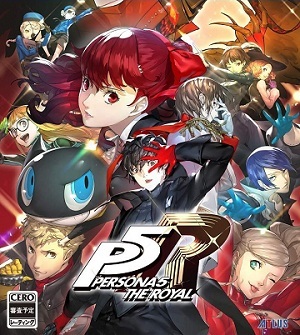
MegaTen has seen significant dividends as a spin-off factory: Devil Summoner and its sequels, which retains the first-person RPG format but uses detective fiction as a framing device instead of apocalyptic shenanigans; Devil Survivor, which is a grid-based SRPG duo for the DS; Majin Tensei, which like Devil Survivor has grid-based SRPG combat; Last Bible, which softens all the "summoning Beelzebub" stuff by replacing it with raising monsters in fantasy kingdoms; DemiKids, which focuses even more on a younger audience by making all the demons cute like Pokémon (except Jack Frost, who was already cute); Digital Devil Saga, which recontextualizes the demons and apocalypse as all happening within a corrupted computer system Tron-style; and Tokyo Mirage Sessions #FE, which replaced the demons the protagonists use with Fire Emblem characters and then sets the whole thing in the Japanese entertainment industry.
The most significant spin-off, and the one that I'm making the case is superior to the core entries, is the Shin Megami Tensei: Persona series: six games (not including enhanced editions and their own spin-offs like Dancing Night and Arena) that follow regular highschoolers fighting the forces of darkness, calling upon either a single "Persona" that reflects their own self or an ever-changing selection of Personae that can be switched around at will. This site of all places doesn't really need a Persona primer, but the Persona games did mark the point where I became far more interested in SMT thanks to a few extravagances like a light dating sim aspect and a more focused party structure where every character besides the protagonist had a distinct and pre-determined combat role, with the protagonist instead serving as a wildcard that could be custom-built for any purpose. While Europe sadly skipped over Persona 1, Persona 2a, and Persona 2b (at least the first time around), Persona 3, Persona 4, and Persona 5 are all excellent games with their own strengths and weaknesses. Personally, I'm most partial to Persona 3's story, Persona 4's characters, and Persona 5's style and game mechanics. I think I'd play any of them, or the Digital Devil Saga games or Tokyo Mirage Sessions, before I tried Nocturne again.
Borderlands
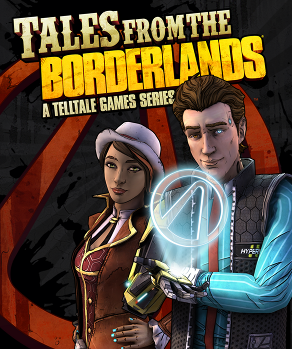
Couple of shorter entries here since I've rambled on enough. Gearbox's "shlooter" series Borderlands seems to get worse with every successive mainline entry, even if the franchise itself shows no sign of stopping with a big Hollywood adaptation on the way, and as far as I know it only has the one spin-off: an episodic adventure series from Telltale Games called Tales from the Borderlands.
I think over the years and as I've grown older and more, let's say, cognizant of the remaining amount of time I have left to fritter away, the modest charms of the loot RPG format have diminished considerably. I'm much more drawn to shorter Indie games or modern RPGs that minimize grinding and farming and incorporate more quality-of-life conveniences like fast travel (which is also why I've forsaken Disgaea and Monster Hunter for the most part). There's no getting around the fact that the dialogue and script of the core Borderland series, especially 2 and 3, is beyond dire and something players often seek to actively disable in order to enjoy the game.
Tales from the Borderlands is distinct from the others because its characters are endearing and amusing, even the villains, and though you have Telltale's cloying Sophie's Choice format of branching paths based on difficult decisions you have to commit to it's a much better story delivered in a far more entertaining fashion. You don't get the shooting or the colored loot (well, you sorta do) but you do get to see the franchise being the charming, goofy Mad Max parody it always set out to be until the memes took it over completely.
Ghosts 'n Goblins
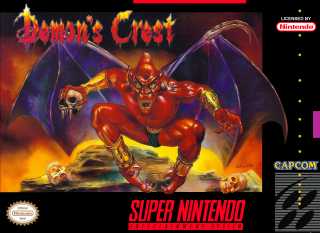
What's been amusing over the past few weeks is seeing the likes of Brad or Jeff's reactions to Ghosts 'n Goblins Resurrection and how well Capcom's macabre Ghosts 'n Goblins platformer series has aged, ridiculous difficulty and all. Originally built for the arcades, which means they're also built to hoover the quarters right out of your pocket, the Ghosts 'n Goblins franchise has always been unreasonably challenging and even when they came to home consoles that difficulty was retained as a trademark of the series, even if it didn't make as much sense in this new venue. The only way you were going to see a Ghosts 'n Goblins game with a more measured approach was with the console-exclusive spin-offs. The first of these came about courtesy of an early-game enemy that was so notorious for cheap deaths that he became something of a minor celebrity: the Red Arremer, also known as Firebrand.
Gargoyle's Quest for Game Boy, Gargoyle's Quest II for NES, and the SNES follow-up Demon's Crest, were more elaborate platformers that enhanced the mechanics of the core series with some acquired abilities, sometimes necessitating backtracking for extra upgrades like an explormer. Firebrand's gift of flight, which could also be upgraded in some games, also meant the platforming was considerably less aggravating than Arthur's lack of air control, though later Gargoyle's Quest/Demon's Crest stages took advantage of this flying (or gliding) ability to create vertical stages or stages with very little solid ground to work with. Between action stages, Firebrand could visit towns and talk to NPCs for possible rewards, or pick fights on the overworld map. I'd argue all three of these spin-offs have aged better than the core series. You also have the two Maximo games which, though I didn't care for them at the time, are an evolution of the original series that may have held up better in some mechanical respects. I wouldn't say they were that much easier though.
Dynasty Warriors
This is perhaps the most subjective yet, as I've only dipped my toe in Omega Team and Koei Tecmo's Musou brawlers a handful of times over the years. While I own three games from the Dynasty Warriors franchise, I couldn't get too far into any one of them. Part of that is due to the game's impenetrable setting: an ancient conflict that resulted in the unification of China as conveyed by the historical novel Romance of the Three Kingdoms. There's so many notable generals and lieutenants from each kingdom across sixty years of campaigns that it's a little intimidating to follow it all, unless you're a dedicated fan of either the original fiction or the Dynasty Warriors canon (or the Romance of the Three Kingdoms strategy-simulation series from Koei, from which Dynasty Warriors itself was a spin-off). I'm treating both Dynasty Warriors and the Dynasty Warriors Empire enhanced editions as the "core" series here, with every other license/setting that has seen the Musou treatment as the spin-offs.
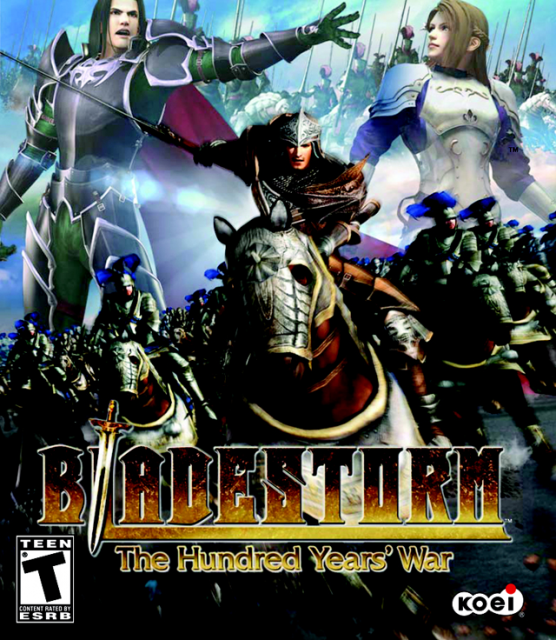
Since each Musou game contains the same format if not the same cast of characters and locations, I'll just list the different properties it's explored: a fictional version of the real-life Sengoku era of 17th century Japan (Samurai Warriors); a fictional version of the Hundred Years' War between France and England (Bladestorm); Gundam (Dynasty Warriors: Gundam); Fist of the North Star (Fist of the North Star: Ken's Rage); One Piece (One Piece: Pirate Warriors); Berserk (Berserk and the Band of the Hawk); The Heroic Legend of Arslan (Arslan: The Warriors of Legend); The Legend of Zelda (Hyrule Warriors); Dragon Quest (Dragon Quest Heroes); Fire Emblem (Fire Emblem Warriors); and most recently Megami Tensei (Persona 5 Strikers).
I don't necessarily dislike this franchise even I don't go out of my way to buy any of them, but even with my limited exposure I've discovered that some franchises and properties are better served by the format than others. Dragon Quest Heroes, for instance, imitates its patron series by incorporating more in the way of quests and RPG character development and though the Dynasty Warriors series has those too they feel more at home here. There's also less emphasis on taking and protecting bases across a map in a real-time skirmish; instead you're often working your way through dungeons or taking on waves of enemies while defending a central location. I keep losing in some Musou games because I'm never in the right place at the right time (I usually chase dead-ends to see if they have any valuables, or to finish off named characters for the XP) but that was less of a problem and instead encouraged in DQH. Ditto for Bladestorm, my other preference over any other Musou I've played, because your role in any given battle is as a supporting mercenary and not the linchpin. There's a lot of versatility to your approach, as you can join and assume command of any roving band of soldiers, whether they're cavalry or archers or even magicians and elephants. Spending time as the leader of different troop types improves your capability in those roles, giving you lots of areas in which to improve. Best of all, you're the same guy or gal throughout; no dropping a high-level character you've grown familiar with to start over from scratch as some other schmuck.
I've now got a shorter list of "Yeah, I Get It"s. That is, franchises that have spin-offs that I've heard others say are better than the core games, but I'm either personally ambivalent about them or haven't yet tried them myself to be sure:
- Lost Planet: I didn't care too much for Capcom's series of mecha shooters that also required you keep a constant vigil on your temperature in a place that made Hoth look positively tropical, but I had enough enjoyment out of a couple of rentals that I can't say I dislike them either. Apparently there's a Japan-only spin-off called E.X. Troopers that's the bees' knees, at least according to a few Japanophone people I follow on Twitter. I'm hoping Capcom decides to rerelease or revive the game for western audiences once they're done with their very tall vampire ladies.
- Yakuza: The core Yakuza games are incredible and I'd have trouble believing that the franchise as a whole has or will ever produce games better than Yakuza 4 or Yakuza 0. As of right now though, I've yet to play Judgment or the historical Yakuza games Ryu ga Gotoku Kenzan! and Ryu ga Gotoku Ishin!. Until I do, I'm not closing the book on which is the best of a very punchy bunch (though I'm guessing it won't be Dead Souls).
- Rayman: The Rayman games are all solid platformers, especially the two reboot games Origins and Legends based on the original 2D side-scroller. They did spawn the proto-Minions that are the Rabbids though, and the Rabbids have had excellent games on their own (Rabbids Go Home) and in crossovers (Mario + Rabbids: Kingdom Battle). Another case where I'd have to flip a coin on which I prefer.
- Might and Magic: This mostly goes out to my fellow CRPG nut @arbitrarywater, who is currently having enough of a time with dubious RPGs again to want to countenance my blasting of a series he loves a great deal. So here's me acknowledging that the Heroes of Might and Magic strategy RPGs spin-offs are every bit the quality product that the original venerable dungeon-crawlers were, even if they're not my particular cup of mana potion. (I never did play Clash of Heroes, but I heard that was pretty good too.)
- Sonic the Hedgehog: Look, I think you're crazy if you prefer Sonic Spinball, Sonic Shuffle, or Sonic R to the core Genesis trilogy or even those ridiculous Sonic Adventure games, but if you told me Robonik's Mean Bean Machine or Sonic & Sega All-Stars Racing or even those Olympics crossover games are your favorite Sonic products I probably won't immediately cave in your skull with a two-by-four to silence the demons that reside within. To Sonic the Fighters fans, though: I will never understand you and I can only hope you will eventually find someone who does.
- Super Mario: It would be way too much work to parse the enormous universe of Super Mario games, so it comes as a relief that I don't agree that any of its many dozens of spin-offs are better than core entries Super Mario Bros. 3, Super Mario World, or Super Mario 64. There's certainly an argument to be made for a Mario Kart, a Mario RPG (Paper or otherwise), a Mario Sports, or a WarioWare being your preference though.
Log in to comment